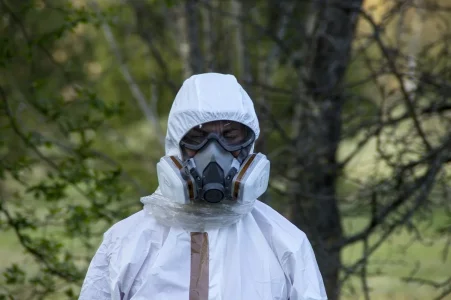
Anthrax is a disease that has garnered significant attention due to its potential for widespread harm. While relatively rare, Nigerians must be aware of this bacterial infection and take necessary precautions. This article will delve into seven crucial topics—facts about anthrax to equip Nigerians with the knowledge to protect themselves and their communities.
Anthrax: An Overview
Anthrax is an infection that is caused by a microorganism. Spore-forming bacterium called Bacillus anthracis. It primarily affects animals, especially livestock, but can also be transmitted to humans. The spores can survive in the soil for an extended period. Extended periods make certain regions more prone to anthrax outbreaks.
Modes of Transmission
Anthrax can be transmitted to humans through direct contact with infected animals, consumption of contaminated animal products, inhalation of spores, or exposure to spores through breaks in the skin. In Nigeria, individuals working with livestock or animal products, such as farmers, veterinarians, and abattoir workers, are particularly at risk.
Common Symptoms
The symptoms of anthrax depend on the mode of transmission. Cutaneous anthrax, the most common form, causes skin lesions with a characteristic black scab, accompanied by fever and swelling. Inhalation anthrax manifests as flu-like symptoms, progressing to severe respiratory distress. Gastrointestinal anthrax from consuming contaminated meat leads to abdominal pain, vomiting, and bloody diarrhoea.
Early Diagnosis and Treatment
Prompt diagnosis and treatment are crucial in managing anthrax effectively. If you experience symptoms associated with anthrax, seek immediate medical attention. Healthcare providers can confirm the diagnosis through laboratory testing and start appropriate antibiotic treatment. The early intervention significantly improves the chances of a full recovery.
Prevention Measures
Preventing anthrax involves implementing a combination of measures at both individual and community levels. Wearing protective clothing, gloves, and masks is essential for individuals working with livestock or animal products. Proper animal vaccination, regular veterinary check-ups, and safe disposal of infected animal carcasses are also vital to controlling the disease's spread.
The Importance of Public Awareness
Raising public awareness about anthrax is paramount in preventing its transmission. Nigerians should stay informed about anthrax outbreaks, follow guidelines issued by health authorities, and report suspected cases promptly. Educational campaigns, community workshops, and information dissemination through media channels can play a pivotal role in creating awareness and preventing the spread of anthrax.
Collaboration and Surveillance
Effective collaboration between government agencies, healthcare providers, veterinarians, and communities is vital for anthrax surveillance and control. Early detection, reporting, and response mechanisms should be established to contain outbreaks swiftly. Regular monitoring of animal health and vaccination programs and thorough meat inspection is crucial in minimizing the risk of anthrax transmission to humans.
Conclusion
While anthrax is relatively rare, Nigerians should be knowledgeable about this infectious disease to protect themselves and their communities. Recognizing the symptoms, seeking early medical attention, and practising preventive measures are essential. By raising public awareness, implementing effective surveillance, and fostering collaboration, we can work together to reduce the impact of anthrax outbreaks in Nigeria. Remember, knowledge is power in safeguarding our health and well-being.




